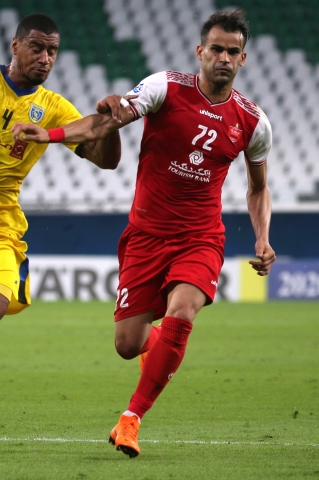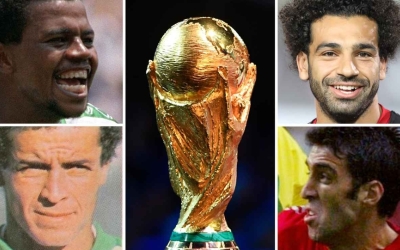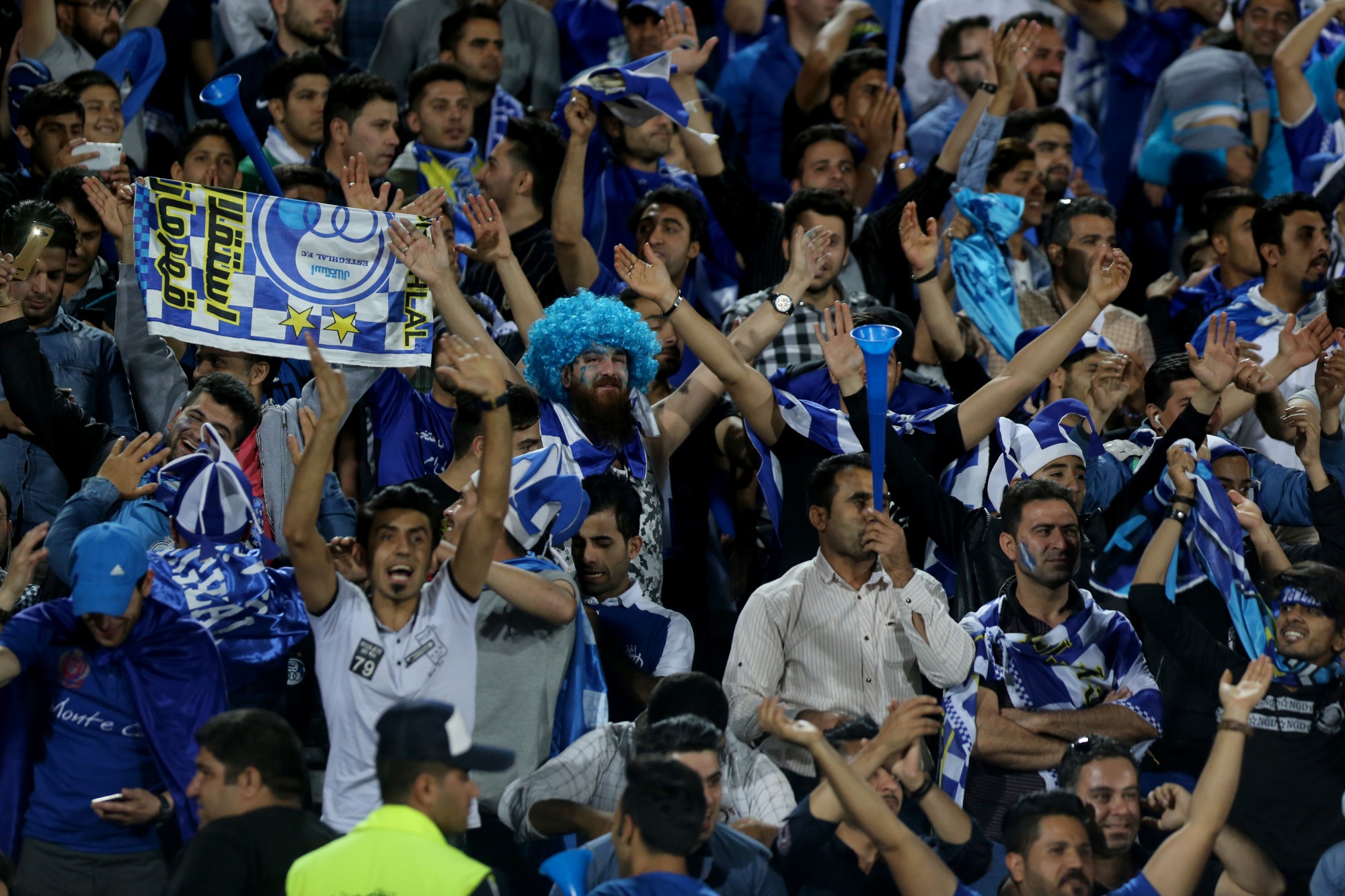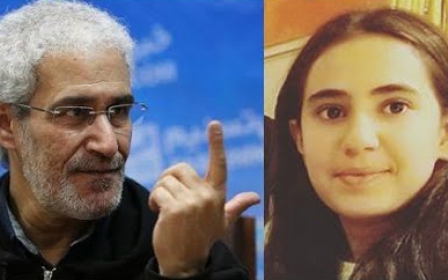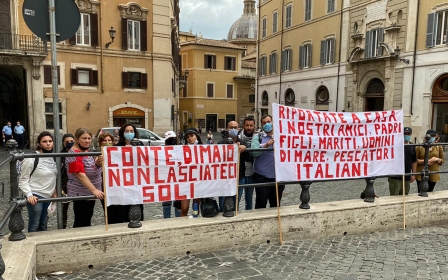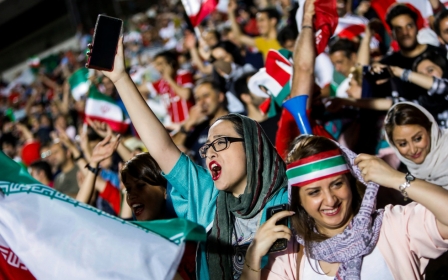Iranian teams' football rivalry reveals ugly side to the beautiful game
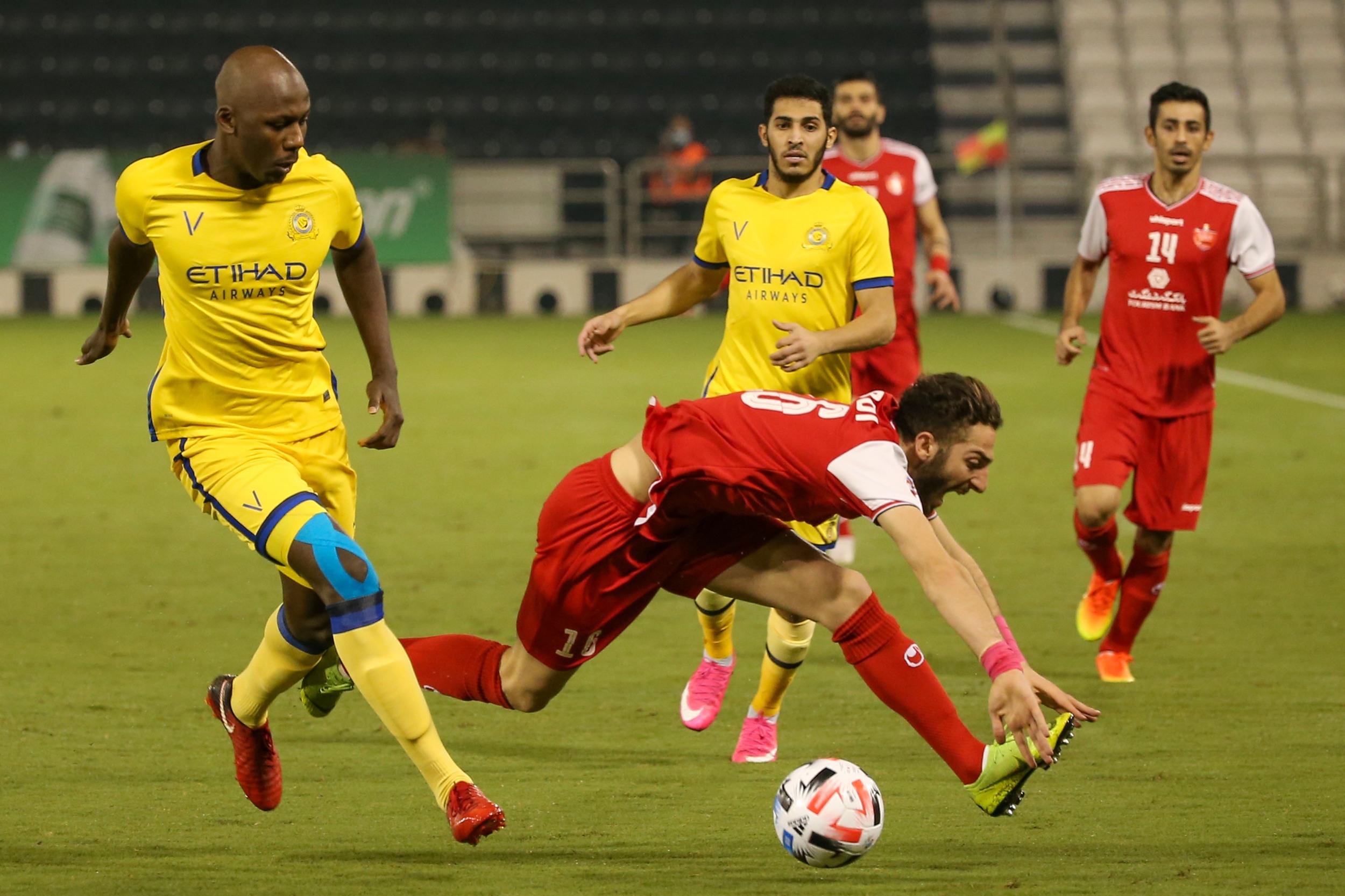
The rivalry between Iran and Saudi Arabia has been touted as one of the most fierce in the Middle East, but it appears even such a geopolitical and sectarian stand-off comes second to the ruthless competition of domestic Iranian football.
A ban announced by the Asian Football Confederation (AFC) against a striker from popular Iranian club Persepolis FC midway through the Asian Champions League has put a spotlight on the intersection of sporting rivalry and national allegiance in Iran, and stoked controversy in the country.
After fans of a rival Iranian team were believed to have intervened in favour of a Saudi team, Iranians have debated whether such moves could be chalked up to regular competition between fans, or whether patriotism should take precedence.
A contested gesture
On 3 October, Persepolis forward Issa Alekasir was handed a six-month ban by the AFC disciplinary and ethics committee for making a slant-eyed gesture to cameras after scoring against Uzbekistan's Pakhtakor in the quarter-finals of the Asian Champions League in Doha, Qatar on 30 September.
New MEE newsletter: Jerusalem Dispatch
Sign up to get the latest insights and analysis on Israel-Palestine, alongside Turkey Unpacked and other MEE newsletters
The committee said the gesture amounted to a racist offence under Article 58.1 of its ethics code.
Alekasir has said that his gesture was in honour of his young nephew who has small eyes, and not a racist goal celebration. Both the Persepolis star and his team have argued that Alekasir used the same gesture numerous times in the past in both domestic matches and in the Asian Champions League without it ever being an issue.
The Reds, as Persepolis are also known, and their top scorer were informed of the verdict just a few hours before their Champions League semi-final against Saudi club al-Nassr.
While the AFC's decision sparked outrage among Persepolis fans, what stoked further anger was the reported involvement of another Iranian team in the case.
Supporters of rival Tehran club Esteghlal reportedly shared template English-language texts on fan Twitter and Instagram pages condemning Alekasir's gesture as racist, and encouraged each other to post these comments on AFC and al-Nassr social media posts with the aim of depriving Persepolis of the top scorer ahead of the match against the Saudi team.
However, Persepolis defeated al-Nassr after a penalty shootout on 3 October, qualifying for the final of the 2020 Asian Champions League, which is slated to take place on 19 December.
The victory led fans all over Iran to take to the streets to celebrate, despite the risks caused by the coronavirus pandemic.
After Persepolis' semi-final victory, however, Esteghlal fans took to the internet once again, this time calling on al-Nassr and the AFC to sue Persepolis for using unauthorised players in their games
Persepolis had previously been suspended by FIFA for signing a new player due to non-payment of its former coach, and supporters of Esteghlal and al-Nassr say Persepolis had no right to use its new players in the AFC Champions League.
Soon afterwards, the Saudi team filed a complaint against the Reds to the AFC, but the confederation rejected the complaint.
'Selling' the homeland?
While Persepolis fans, as expected, disagreed strongly with the AFC's ruling against Alekasir, the involvement of a rival Iranian team siding with a competitor from Saudi Arabia quickly became the lighting rod of the whole controversy.
Given the tense political relations between Riyadh and Tehran, the tacit alliance between al-Nassr and Esteghlal fans was looked at with suspicion by many in Iran.
In an interview with Iranian state television on 5 October, Persepolis head coach Yahya Golmohammadi accused Esteghlal fans of treason.
"Unfortunately, bad things happened inside Iran during our matches. Some sold their homeland. They sold themselves and their country," he said.
Persepolis FC argued that Esteghlal fans' actions went beyond typical football rivalry, announcing on Twitter on 4 October that the club would sue Iranian football fans who had tried to bring damage to the club.
Many in Iran have expressed the view that domestic sports rows and rivalries should not be brought to the international arena, particularly if the opponent is a team from Saudi Arabia.
The framing of the match against the Riyadh-based club in Iranian media reflected how symbolic many saw the game within a context of years of heightened tensions, especially in more conservative media outlets.
Hardline newspaper Vatan-e-Emrooz described Persepolis' win over al-Nassr on its front page as "perfect revenge on the malicious Saudi regime".
Reformist newspapers paid less attention to the scandal, but nonetheless sided with Persepolis. On 4 October, reformist daily Shargh wrote: "Although the strong Saudi lobby tried to weaken the morale of the Persepolis team by disqualifying Alkasir hours before the match, the Persepolis players, with their calculated game, broke the equations of the Arab lobby."
Unlikely bedfellows
These strange alliances have raised an important question in Iranian society regarding whether such behaviour constitutes disloyalty to the state, or whether they should be classified as part and parcel of athletic competitive spirit.
"It is very simple, Esteghlal fans, who have not been able to beat Persepolis in recent years, are angry at and jealous of the success of the Reds," Iranian journalist Alireza Majma told Middle East Eye - alluding to Persepolis dominating the domestic league for four years in a row and reaching the final of the Asian Champions League twice in the last three years, while Esteghlal has not won the domestic league since 2013.
"I cannot remember anything like this in other countries. It may be typical to have football chants, but to urge the AFC from inside the country to penalise a player and the rival team while they had done nothing wrong was strange."
But not everybody agrees. Some Esteghlal fans maintain that sport events at the club level should not be considered a national issue, even when they occur in an international tournament.
"Nowhere in the world is a club game a national game," Saeed Soltani, an Esteghlal fan, told MEE. "I don't understand why it is taken this way in Iran. The action against Persepolis is by no means treason against the country.
"There is no serious fan in the world who is happy with the success of their rival team in international competitions - on the contrary, they would like to see their defeat," the Esteghlal supporter added
However, other Iranians have argued that rejoicing at the loss of a rival was one thing, but outright interference was another.
"What happened after the match between Persepolis and al-Nassr was a bit unusual in international sports competitions in the world," Euronews sports correspondent Mehrdad Sadeghi told MEE. "It is not surprising for fans of a team to dislike the success of their rival team... Nevertheless, supporting a country's representative in international competitions is still important for many football-loving and unbiased people."
"I think some of the moves and provocations by Esteghlal team fans after the semi-final game went beyond football culture and had some moral and legal problems," Sadeghi added. "At the same time, legally speaking, any information or action in the interest of another country, the result of which is against the national interests of one country, is clearly a crime."
Persepolis have yet to take concrete legal steps against Esteghlal fans - and the odds of the team doing so appear unlikely, especially as it gears up for the Champions League final.
While the debate rages on in Iran, the scandal has shown that the intersection of football fandom and nationalism is complex everywhere.
While some al-Nassr fans thanked the managers of Esteghlal and its fans for providing information against Persepolis, supporters of Saudi team al-Hilal took to social media to cheer on the Reds against their domestic rival - proving that sometimes, the love of the game can surpass the love of country.
Middle East Eye delivers independent and unrivalled coverage and analysis of the Middle East, North Africa and beyond. To learn more about republishing this content and the associated fees, please fill out this form. More about MEE can be found here.


